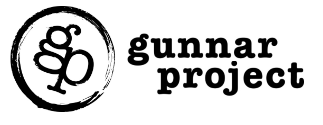Habits that create happiness are great because they happen automatically. We have the ability to form happiness habits, hapits, that will stay with us forever.
Haiku:
automatically
bring happiness to your life
by forming hapits
Develop Habits that Create Happiness - Hapits
Hello -- Marc with the Gunnar Project. The purpose of the Gunnar Project, the mission of the Gunnar Project, is to inspire and encourage people to pursue happiness every day.
What I want to talk about now is the idea of developing habits, so the really cool thing about a habit, once you develop a habit, is it happens automatically so you don’t have to think about it! Let’s take something, for instance, like gratitude -- gratitude comes up all the time in books and talks and various things about happiness. When we take a moment and we’re just truly thankful for the things that are in our life, for the people that are in our life, for just the environment that we’ve been able to take part of -- if we’re truly grateful for those things, there’s no doubt about it, everybody gets a little shot of happiness when they’re grateful. So why aren’t we as grateful as we could be, or is there a way to add this idea, this action of being grateful, to add that into our life every day? I think there is! In fact, this is a great thing to do.
The way that you establish a habit, and what we’re going to do is we’re going to call these things hapits -- like happy -- it’s a happy habit. The way that you establish a hapit is you take a trigger -- something that you do every day -- I’m going to use brushing your teeth -- hopefully you brush your teeth every day? So in the morning, you wake up, you do your deal, whatever it is and at some time you put a little toothpaste on your toothbrush and you brush your teeth. If you took that moment, the minute or two or three or however long it takes you to brush your teeth, and you thought of three things that you are truly grateful for -- it could be your health, it could be your parents, it could be your job, it could be your employer -- doesn’t really make any difference -- you just got into the hapit of being very grateful for three things and give yourself the opportunity to think not just “Thanks for my mom and dad” but “Thanks mom and dad, I can’t believe that they gave up this to provide me this opportunity -- they were able to do this to let me have this” and really just dive into that just a little bit more and you’re sitting there brushing your teeth and you’re just thinking about three things that you’re truly grateful for -- I can guarantee you when you’re done brushing your teeth, you’re going to be a little bit fired up -- you’re going to be a little bit -- it’s going to give you a nice little shot of happiness and that being grateful is going to stick with you for most of the rest of your day.
If you did this, and research on habits has shown that in order for you to create a habit that’s going to stick, it’s going to take you between 30 and 60 days and for something this simple, brushing your teeth and thinking about three things you’re grateful for, it might take you 60 days, so a couple of months -- but think how cool that’s going to be if you develop this hapit for the rest of your life every single time you grab your toothbrush, you think of three things you’re grateful for -- and it’s just going to come to you second nature -- you’re just going to be that person who’s going to look at themselves in the mirror brushing their teeth and say “I’m just so thankful that I’m healthy… and I’m just so thankful that I have this great opportunity to be at this University or to be within this company...” or whatever it is -- just think about how cool that is to just have that be sort of an automatic response for the rest of your life.
And if you take a look at a year, you have six of these opportunities -- these two-months, 60 day opportunities, to create some automatic hapits like that. You can be grateful, you can forgive, you can eat properly -- I’m very envious -- I don’t do it myself, but I have some friends who every single time before they eat a meal, they take just a moment, and they say a little prayer of thanks to their God for providing for them. That’s just so cool -- it makes them feel really good and it’s one of those built-in automatic things -- they just don’t even think about it -- every time before they eat a meal, they take a step back and they say a prayer and they say thanks. Super cool stuff!
So the idea of building a hapit and building a routine into your life, is a key component in creating sort of a happiness practice and going out and pursuing happiness every day.
Again this is Marc with the Gunnar Project, thank you much, and we’ll talk to you again soon! Bye.


